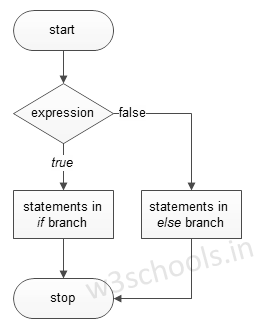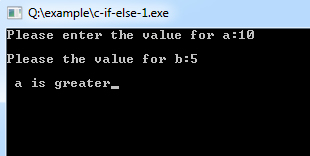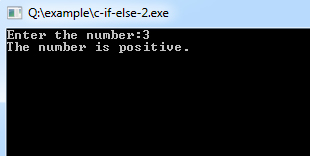Flow Control
C if-else Statements
If else statements in C is also used to control the program flow based on some condition, only the difference is: it’s used to execute some statement code block if expression is evaluated to true, otherwise executes else statement code block.
The basic format of if else statement is:
Syntax:
if(test_expression)
{
//execute your code
}
else
{
//execute your code
}Figure – Flowchart of if else Statement:

Example of a C Program to Demonstrate if else Statement
Example:
#include<stdio.h>
main()
{
int a, b;
printf("Please enter the value for a:");
scanf("%d", & amp; a);
printf("\nPlease the value for b:");
scanf("%d", & amp; b);
if (a & gt; b) {
printf("\n a is greater");
} else {
printf("\n b is greater");
}
}Program Output:

Example:
#include<stdio.h>
main()
{
int num;
printf( & quot; Enter the number: & quot;);
scanf( & quot; % d & quot;, & amp; num);
/* check whether the number is negative number */
if(num < 0)
printf("The number is negative.");
else
printf("The number is positive.");
} Program Output:

Comments
Post a Comment